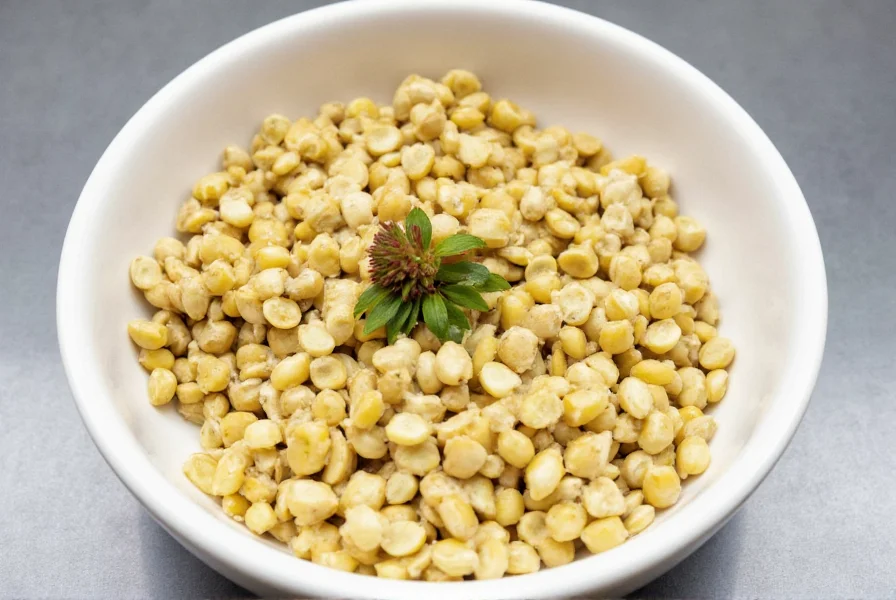Understanding the appropriate ginger dosage is crucial for safely enjoying this popular spice's health benefits while avoiding potential side effects. Ginger has been used medicinally for centuries, but like many natural substances, more isn't always better. This comprehensive guide examines the science behind ginger consumption limits to help you make informed decisions about incorporating this versatile root into your diet.
Recommended Daily Ginger Intake Guidelines
While ginger is generally recognized as safe by the FDA, establishing appropriate consumption levels depends on several factors including the form of ginger, individual health status, and specific health goals. The World Health Organization (WHO), European Medicines Agency (EMA), and other health authorities have established guidelines for safe ginger consumption.
| Ginger Form | Recommended Daily Amount | Maximum Safe Limit |
|---|---|---|
| Fresh ginger root | 1-1.5 grams (⅛-¼ inch slice) | 4 grams |
| Dried ginger powder | 0.25-1 gram | 4 grams |
| Ginger extract (standardized) | 100-200 mg | Up to 1,000 mg |
| Ginger tea (brewed) | 2-4 grams in 8 oz water | Up to 12 grams total daily |
These recommendations represent general guidelines for healthy adults. Individual tolerance varies significantly based on factors like body weight, digestive sensitivity, and existing health conditions. The daily ginger consumption limit of 4 grams serves as a safety threshold rather than a target amount.

Health Benefits of Moderate Ginger Consumption
Consuming ginger within recommended limits offers numerous evidence-based health benefits. Research shows that appropriate ginger dosage for nausea relief typically ranges from 1-1.5 grams daily, with effects noticeable within 30-60 minutes of consumption. Studies on ginger anti-inflammatory properties suggest consistent daily intake of 0.5-1 gram can reduce inflammatory markers.
The active compounds in ginger, particularly gingerols and shogaols, provide antioxidant effects that support overall health when consumed in appropriate amounts. Many people wonder about the safe amount of ginger for digestion—most studies indicate 1-2 grams daily optimizes digestive benefits without adverse effects.
Potential Side Effects of Excessive Ginger Consumption
Consuming ginger beyond the recommended maximum daily ginger intake can lead to several uncomfortable and potentially serious side effects. Understanding these risks is essential for determining how much ginger is too much for your individual physiology.
Common Mild to Moderate Side Effects
- Heartburn and acid reflux
- Mouth or throat irritation
- Diarrhea or loose stools
- Increased bleeding tendency
- Lowered blood pressure
- Allergic skin reactions
More Serious Concerns at High Doses
Consuming more than 5 grams daily significantly increases the risk of adverse effects. At extremely high doses (exceeding 10 grams daily), ginger may cause:
- Severe gastrointestinal distress
- Irregular heart rhythms
- Significant blood thinning effects
- Hypoglycemia in diabetic patients
- Liver toxicity in susceptible individuals
These ginger overdose symptoms warrant immediate medical attention. If you experience severe reactions after consuming large amounts of ginger, seek professional healthcare advice promptly.
Special Populations: When to Reduce Ginger Intake
Certain groups should exercise additional caution with ginger consumption and may need to stay well below the standard safe daily limit of ginger:
Pregnant Women
While ginger is commonly used to alleviate morning sickness, pregnant women should limit intake to no more than 1 gram daily after consulting with their healthcare provider. Some studies suggest higher amounts might affect fetal development, though evidence remains inconclusive.
Individuals with Bleeding Disorders
Ginger's natural blood-thinning properties mean those with hemophilia or taking anticoagulant medications should limit ginger to minimal culinary amounts (under 0.5 grams daily) and discuss with their physician before using ginger medicinally.
People with Gallstones
Ginger stimulates bile production, which can exacerbate symptoms for those with gallstones. Consult your doctor about appropriate ginger consumption limits with gallstones.
Diabetics
Due to ginger's potential blood sugar-lowering effects, diabetics should monitor glucose levels carefully when consuming ginger and discuss appropriate amounts with their healthcare team.

Recognizing Ginger Overconsumption
How can you tell if you've crossed the threshold of how much ginger is too much for your body? Watch for these warning signs:
- Persistent heartburn that doesn't respond to antacids
- Unusual bleeding or bruising
- Dizziness or lightheadedness
- Significant changes in blood pressure
- Severe digestive upset lasting more than 24 hours
- Allergic reactions including rash or difficulty breathing
If you experience multiple symptoms after consuming ginger, especially in supplement form, consider reducing your intake. For severe reactions, discontinue use immediately and consult a healthcare professional.
Practical Tips for Safe Ginger Consumption
Follow these evidence-based strategies to enjoy ginger's benefits while staying within safe limits:
- Track your total daily intake from all sources (food, tea, supplements)
- Start with small amounts (¼ teaspoon powder or ½ inch fresh root) to assess tolerance
- Space consumption throughout the day rather than taking large doses at once
- Choose standardized supplements with clear labeling of active compounds
- Consult your healthcare provider before using ginger medicinally if you have chronic health conditions
- Be cautious with concentrated forms like extracts and essential oils which deliver higher doses
Remember that natural ginger dosage recommendations vary based on your specific health goals. For general wellness, smaller amounts typically suffice, while therapeutic applications might require higher—but still controlled—doses under professional guidance.
When to Consult a Healthcare Professional
While ginger is generally safe when consumed in culinary amounts, consult a healthcare provider if:
- You plan to use ginger medicinally for an extended period
- You have a chronic medical condition (especially heart, liver, or blood disorders)
- You're taking prescription medications that might interact with ginger
- You're pregnant or breastfeeding and considering medicinal use
- You experience persistent side effects after ginger consumption
Healthcare professionals can provide personalized guidance on appropriate ginger dosage for your specific health needs and help you determine your individual tolerance level.
Conclusion
Understanding how much ginger is too much empowers you to safely harness this spice's health benefits. For most adults, staying below 4 grams daily from all sources provides optimal benefits while minimizing risks. Individual tolerance varies, so pay attention to your body's signals and adjust accordingly. When in doubt about safe ginger consumption levels for your specific circumstances, consult a qualified healthcare provider for personalized advice.
Frequently Asked Questions
Can you overdose on ginger?
While true ginger overdose is rare, consuming more than 5 grams daily can cause significant side effects including severe heartburn, diarrhea, and blood thinning. Extremely high doses (over 10 grams) may lead to more serious complications requiring medical attention. The maximum safe daily ginger intake for most adults is 4 grams from all sources combined.
How much ginger is safe to consume daily?
The generally recommended safe daily amount of ginger is 1-1.5 grams of fresh ginger root or 0.25-1 gram of dried powder for therapeutic benefits. The upper safety limit is 4 grams daily from all sources combined. Individual tolerance varies, so start with smaller amounts and monitor your body's response before increasing your intake.
What are the signs of consuming too much ginger?
Common ginger overdose symptoms include persistent heartburn, mouth irritation, diarrhea, unusual bleeding or bruising, dizziness, and low blood pressure. More severe reactions at very high doses may include irregular heartbeat, significant hypoglycemia, or liver issues. If you experience multiple symptoms after consuming large amounts of ginger, reduce your intake and consult a healthcare provider if symptoms persist.
Is 3 grams of ginger too much?
Three grams of ginger is below the 4-gram daily safety threshold for most adults, but whether it's too much depends on individual factors. For some people with sensitive digestive systems, 3 grams might cause heartburn or diarrhea. If you're new to ginger consumption, this amount might be excessive. However, for those with established tolerance using ginger for specific therapeutic purposes, 3 grams daily may be appropriate under healthcare guidance.
Can I take ginger supplements every day?
Yes, you can take ginger supplements daily within recommended limits, but consult your healthcare provider first—especially if you have underlying health conditions or take medications. Standardized ginger supplements typically contain 100-200 mg of extract per dose. When determining daily ginger supplement dosage, remember to account for all ginger sources in your diet. Long-term daily use of high-dose supplements should be monitored by a healthcare professional.











 浙公网安备
33010002000092号
浙公网安备
33010002000092号 浙B2-20120091-4
浙B2-20120091-4